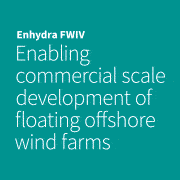The developer of the proposed Nantucket Sound wind farm has joined 21 utilities, state agencies and other organizations intervening in the proposed merger of NStar and Northeast Utilities.
Cape Wind Associates LLC was granted the special status to participate in the state Department of Public Utilities review of the merger on Jan. 6. Also on the list of interveners are Cape Light Compact, Attorney General Martha Coakley, and the Conservation Law Foundation, an environmental group that supports Cape Wind.
Northeast Utilities and NStar announced the merger in October. The companies have a combined value of $17.5 billion.
The DPU approved a deal between Cape Wind and National Grid for half of the power from the 130-turbine wind farm. The company has not sold the remaining power from the project and Cape Wind’s opponents fear the state is trying to force NStar to the table through its review of the merger.
National Grid delivers electricity to Nantucket and other parts of the state where Cape Wind’s power will add about $1.50 to the average electricity bill for a customer who uses 618 kilowatt hours a month. The price of the contract between Cape Wind and National Grid will rise by 3.5 percent each year.
NStar delivers electricity on Cape Cod and Martha’s Vineyard, but Cape Light Compact buys power in bulk for most customers on the Cape and Vineyard.
The Alliance to Protect Nantucket Sound, which opposes Cape Wind, filed comments with the DPU questioning whether the state would force NStar into a deal with the wind energy developer as a condition of the merger’s approval.
“We hope this is not the case because in our view such a course of action would not only establish the worst possible public policy but would also constitute a clear abuse of regulatory authority,” alliance officials wrote.
The state does not act as sales representative for any power generator, said Lisa Capone, spokeswoman for the Massachusetts Executive Office of Energy and Environmental Affairs.
“That said, it is well known that Governor (Deval) Patrick considers Cape Wind an important project in terms of clean energy and jobs for the commonwealth, and that the contract between Cape Wind and National Grid establishes terms that satisfy the attorney general and have been approved as cost-effective by the Department of Public Utilities,” she said.
Because of this, state Secretary of Energy and Environmental Affairs Richard Sullivan hopes and expects that the state’s other investor-owned utilities will consider contracting for part of the project’s remaining power, Capone said.
In its filing seeking intervener status, Cape Wind stated that the DPU’s review should include consideration of whether the merger “would advance the development of the commonwealth’s solar and offshore wind resources,” a standard of review promoted by Patrick’s administration.
The company also argued that because of Cape Wind’s “unique potential to fulfill the commonwealth’s stated statutory objectives” it should be allowed to contribute to the record on the merger.
“We’d like to see the review be consistent with the commonwealth’s policy on renewable energy,” Cape Wind vice president Dennis Duffy said.
Duffy declined to comment on any discussions between Cape Wind and NStar.
NStar has expressed little interest in Cape Wind’s power and has filed contracts with other companies to purchase renewable energy as required by state mandates.
NStar spokeswoman Caroline Allen said the utility has had no recent discussions with Cape Wind.
—–
To see more of the Cape Cod Times, or to subscribe to the newspaper, go to http://www.capecodonline.com.






























